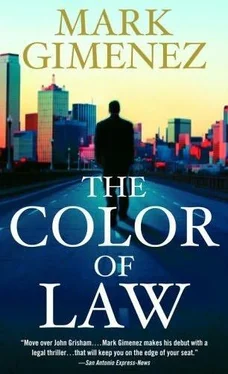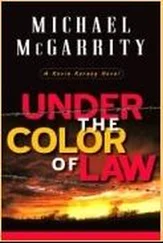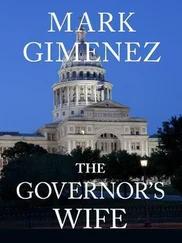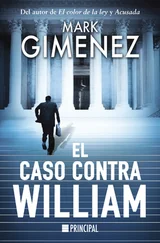Mark Gimenez - The Color of Law
Здесь есть возможность читать онлайн «Mark Gimenez - The Color of Law» весь текст электронной книги совершенно бесплатно (целиком полную версию без сокращений). В некоторых случаях можно слушать аудио, скачать через торрент в формате fb2 и присутствует краткое содержание. Жанр: Криминальный детектив, на английском языке. Описание произведения, (предисловие) а так же отзывы посетителей доступны на портале библиотеки ЛибКат.
- Название:The Color of Law
- Автор:
- Жанр:
- Год:неизвестен
- ISBN:нет данных
- Рейтинг книги:3 / 5. Голосов: 1
-
Избранное:Добавить в избранное
- Отзывы:
-
Ваша оценка:
- 60
- 1
- 2
- 3
- 4
- 5
The Color of Law: краткое содержание, описание и аннотация
Предлагаем к чтению аннотацию, описание, краткое содержание или предисловие (зависит от того, что написал сам автор книги «The Color of Law»). Если вы не нашли необходимую информацию о книге — напишите в комментариях, мы постараемся отыскать её.
The Color of Law — читать онлайн бесплатно полную книгу (весь текст) целиком
Ниже представлен текст книги, разбитый по страницам. Система сохранения места последней прочитанной страницы, позволяет с удобством читать онлайн бесплатно книгу «The Color of Law», без необходимости каждый раз заново искать на чём Вы остановились. Поставьте закладку, и сможете в любой момент перейти на страницу, на которой закончили чтение.
Интервал:
Закладка:
“Is her old man here?”
The lollipop turned and walked over to a white-haired man sitting on the love seat from the formal living room that was selling for $1,000. She sat down and he patted her skinny thigh.
“That’s him. Mother said he’s a billionaire.”
“He looks like her granddaddy. Mama would charge double to entertain a man as old as him. He must’ve paid a lot of money for his lollipop.”
Scott was taking cash faster than he could count for clothes he had never seen Rebecca wear, furniture he had never sat on, and rugs he had never stepped on. Rebecca had filled every square foot of the 7,500-square-foot residence with her stuff. Now Scott was selling six thousand square feet of her stuff. And he was enjoying it.
“Your daughter said to pay you.”
A middle-aged black woman had walked up to Scott.
“Hi, I’m Scott Fenney.”
“I’m Dolores Hudson. We just moved in down the street”-she smiled-“the first black homeowners in Highland Park history?”
“Oh, yeah, I read about you. Welcome to the neighborhood, although I won’t be here much longer.”
She gave him a sympathetic look. “I’ve read about you, too.”
“Yeah, well, you should believe everything you read.”
“I don’t think so. When are you moving?”
“I close on the sale of this place Thursday, then on the new place Friday. We’ll move right after the trial.”
“Well, if the timing doesn’t work out and you need a place to stay, you and the children come stay with us. And I bet those girls haven’t had any home cooking since your wife-”
She was embarrassed. But Scott smiled and said, “My wife didn’t cook.”
“Well, I do. I’ll bring something over.”
“Thank you, Dolores.”
“No, thank you, Scott. For what you’re doing. You know, we weren’t sure we were doing the right thing buying a home here. I didn’t know if I wanted to be the Rosa Parks of Highland Park, whether we’d be accepted here.”
“You did the right thing, Dolores. Most of the people here, particularly the younger ones, they’ll be fine. Some of the old-timers won’t accept you, but take it from me, you don’t want to be friends with them anyway.”
Dolores paid and said thanks again.
Boo was holding up a flowery sundress for a young woman.
“Luca Luca, you’ve heard of him, the Italian designer?”
“Of course. Who hasn’t?”
She took the dress from Boo and held it against her body. It was a perfect fit.
“Almost as pretty as it looked on my mother.”
“You know, I pledged the same sorority as your mother. She was six years before me. But she’s still a role model for all the girls-Miss SMU marries a football star who becomes a rich lawyer. It’s like Cinderella.”
Boo nodded. “I must’ve missed the part where Cinderella walks out on her family for a golf pro.”
Bobby was lining up a shot when someone stepped directly into his line of sight at the opposite end of the pool table. He raised up to tell the idiot to get the hell out of the way-
“Hi, Bobby.”
— and damn near hit himself with the pool cue.
“Karen, what are you doing here?”
“I quit.”
“What?”
“Ford Stevens.”
“You’re shi…You’re kidding me? Why?”
“I didn’t like the way they were making me think.”
“Like a lawyer?”
“Yeah.”
“Smart girl. What are you gonna do?”
“Work with you and Scott on your case.”
When the summer sun set on the yard sale at 4000 Beverly Drive in the heart of Highland Park, nothing was left-not a shoe or a dress or a lamp or even the pool table. In less than nine hours, Scott had sold most of the material possessions he had acquired during eleven years of marriage, all the things that evidenced his existence, his ambitions, his career, and his wife.
The girls were at the other end of the kitchen, adding up their profits on the floor. Louis was counting his tip money-“Six hundred dollars for carrying stuff”-and sitting with Scott, Bobby, and Karen Douglas on the floor and eating fried chicken Dolores Hudson had brought over. The table and chairs had sold for $1,500.
“Karen,” Scott said, “forget everything I ever told you about being a lawyer. I was wrong.”
“You’re a great lawyer, Scott, everyone at the firm says so, even since you left.”
“I didn’t leave. I got fired.”
“Well, even after that.”
“No, Karen, I was a corrupt lawyer. I cheated my clients, I cheated the law, and I cheated myself. I did whatever it took to win. I practiced law like it was a football game. It isn’t.”
“Karen wants to help us,” Bobby said.
“Why?”
Karen said, “Because you need help. And I like Bobby.”
Bobby dropped his drumstick.
Boo yelled over, “Sixty-seven thousand, four hundred fifty dollars.”
TWENTY-FOUR
"Voir Dire” is a legal phrase meaning “to speak the truth.” In the American legal system, “voir dire” refers to the process of picking a jury, perhaps because of all the players in a criminal trial, only the jurors are truly interested in the truth. Everyone else just wants to win.
In federal court, jurors must be citizens; at least eighteen years old; proficient in reading, writing, understanding, and speaking English; not be physically or mentally infirm; not have been convicted of a felony; and not have felony charges currently pending against them. Finding twelve people who meet such qualifications is easy; finding twelve people you would want to sit in judgment of your life is not.
That’s where voir dire comes in. The judge and lawyers question the prospective jurors to uncover biases, prejudices, and predispositions that might prevent them from rendering a fair and impartial verdict. At least that’s the theory. The reality is that every juror comes to court with his or her personal biases, prejudices, and predispositions that will absolutely prevent that person from rendering a fair and impartial verdict-which is precisely the kind of jurors both sides want. The real goal of voir dire is to find twelve jurors who are biased, prejudiced, and predisposed in your favor.
A trial in a court of law is not about truth, justice, and the American way. It’s about winning. Prosecutors want a conviction so that they can build a track record of putting criminals in jail, a prerequisite for election or appointment to higher political office; defense attorneys want an acquittal because acquittals in high-profile criminal cases bring fame and fortune. Thus neither the prosecutor nor the defense attorney is concerned with truth or justice: truth is whatever they can get a jury to believe, and justice is when they win.
As he sat in a federal courtroom in downtown Dallas on a hot day in August, Scott Fenney believed his client had put the barrel of her. 22-caliber gun to Clark McCall’s head and pulled the trigger. He also believed she had done so in self-defense. Now he had to question the men and women sitting before him in the hope of finding twelve jurors who might agree with him and, if not acquit his client, at least not send her to death row.
Judge Buford had already questioned the prospective jurors concerning their legal qualifications and dismissed only one, a man who, when asked if he had any pending felony charges, answered, “They haven’t been able to prove anything yet!”
Ray Burns had then questioned the prospective jurors about their willingness to find the defendant guilty knowing she might be sentenced to death. Seven prospective jurors said they were morally opposed to the death penalty and were excused.
Now twenty-nine prospective jurors were staring at Scott Fenney and Robert Herrin, waiting for the defendant’s counsel to question them. In every prior voir dire, sitting next to A. Scott Fenney had been an expensive psychologist trained in the art of jury selection, not a lawyer who practiced street law in a strip center next to a Mexican bar. For fees up to $1,000,000, such jury experts conduct mock trials, focus groups, and pretrial polling to develop a detailed psychological profile of the ideal juror. They investigate the prospective jurors’ employment, income, religion, hobbies, and politics. They study their clothes, their body language, and their answers during voir dire. They coach the lawyers on what to drive to the courthouse (leave the Mercedes-Benz at home because jurors might see you in the parking lot), what to wear to trial (no Rolexes or double-breasted Armani suits), and how to act in front of the jurors (try to “humanize” yourself; that is, pretend to be a normal human being in front of the jurors, a more difficult assignment for most lawyers than merely dressing down). They give the lawyer a thumbs-up or a thumbs-down on each prospective juror.
Читать дальшеИнтервал:
Закладка:
Похожие книги на «The Color of Law»
Представляем Вашему вниманию похожие книги на «The Color of Law» списком для выбора. Мы отобрали схожую по названию и смыслу литературу в надежде предоставить читателям больше вариантов отыскать новые, интересные, ещё непрочитанные произведения.
Обсуждение, отзывы о книге «The Color of Law» и просто собственные мнения читателей. Оставьте ваши комментарии, напишите, что Вы думаете о произведении, его смысле или главных героях. Укажите что конкретно понравилось, а что нет, и почему Вы так считаете.












